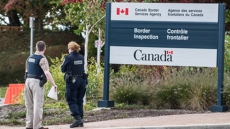OTTAWA — The Supreme Court of Canada, citing a "culture of complacency" in the justice system, has set out a new framework for determining whether a criminal trial has been unreasonably delayed.
In a potentially groundbreaking 5-4 decision Friday, the high court said the old means of determining whether a person's constitutional right to a timely trial had been infringed was too complex and unpredictable.
The Charter of Rights and Freedoms says someone charged with an offence has the right to be tried within a reasonable time.
Under the new framework, an unreasonable delay would be presumed should proceedings — from the criminal charge to conclusion of a trial — exceed 18 months in provincial court, or 30 months in superior court.
However, these benchmarks are not set in stone.
The Crown could challenge the notion that a delay is unreasonable by demonstrating "exceptional circumstances," a majority of the court said in its reasons.
These circumstances could include something unforeseen and beyond the Crown's control, such as a sudden illness, or a case requiring extradition of an accused from another country. They might also arise in "particularly complex" cases that involve disclosure of many documents, a large number of witnesses or a significant need for expert evidence.

In addition, a delay may be unreasonable even if it falls below the newly prescribed time limits. However, the defence would have to establish that it took meaningful steps to expedite the proceedings and show the case lasted "markedly longer" than it should have.
The Supreme Court said that as a transitional measure for cases already in the system, the new framework must be applied "flexibly and contextually."
The court said a key problem with the previous system, which flowed from a 1992 high court ruling, was that long delays were considered reasonable unless the accused could show there was actual harm to his interests — a consideration that will not figure in the new framework.
The right to be tried within a reasonable time is central to the administration of Canada's criminal justice system, wrote Justices Michael Moldaver, Andromache Karakatsanis and Russell Brown on behalf of the majority.
"An unreasonable delay denies justice to the accused, victims and their families, and the public as a whole."
However, unnecessary procedures and adjournments, inefficient practices and inadequate institutional resources have been "accepted as the norm and give rise to ever-increasing delay," the ruling said.
The old framework failed to address this "culture of complacency," and participants in the justice system — police, Crown counsel, defence lawyers, courts, provincial legislatures and Parliament — were not encouraged to "take preventative measures to address inefficient practices and resourcing problems," the court said.

The Supreme Court made the decision in ruling that the British Columbia drug convictions of Barrett Richard Jordan must be set aside due to an unreasonable delay.
In a dissenting opinion, a minority of the court agreed the charges against Jordan should be stayed, but called the new framework for gauging delays "unwarranted and unwise," saying it could lead to thousands of prosecutions being tossed out.
If time limits are to be set out, Parliament — not the court — should do it, wrote Justice Thomas Cromwell on behalf of the minority, which lamented a lack of evidence on which to set the ceilings of 18 and 30 months.
"For the vast majority of cases, the ceilings are so high that they risk being meaningless," Cromwell said. "They are unlikely to address the culture of delay that is said to exist. If anything, such high ceilings are more likely to feed such a culture rather than eliminate it."
In a companion decision Friday, the Supreme Court affirmed that Kenneth Gavin Williamson's sexual assault convictions should be stayed due to delays in his case.
A majority of the court said that at nearly three years, the relatively straightforward case took far longer than it should have, and the delay was unreasonable under either the old or new framework.



